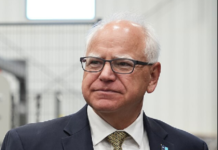Microsoft co-founder Bill Gates is advocating for efforts to modify cows as part of an initiative to combat climate change by reducing methane emissions from beef cattle. Gates expressed this idea during a panel discussion at the third edition of the French finance ministry’s “Rendez-vous de Bercy” event in Paris, a globalist gathering addressing various economic issues. He voiced dissatisfaction with the perceived lack of urgency among countries in developing innovative renewable energy solutions to address the claimed climate crisis.
The event in Paris focused on environmental issues and economic growth in the context of climate change, with Gates emphasizing the need for accelerated progress to meet the World Economic Forum’s “Net Zero” targets.
“We are behind on our short-term goals” in advancing the globalist green agenda, Gates warned.
“Rich countries owe it to the world to keep costs low for green technology,” he said.
Gates expressed optimism about the United Nations COP28 global climate summit, which concluded in the United Arab Emirates on December 12. Bill Gates noted a heightened emphasis on innovation compared to previous meetings. In his address at the Paris summit, Gates highlighted the role of artificial intelligence (AI) in aiding the agriculture sectors of developing countries. He asserted that AI assists farmers in those regions with improved weather forecasts and crop and climate analysis.
Gates further contended that “methane emissions” from meat production significantly contribute to “climate change.” Proposing plans to address this, he advocated for the manipulation of cows through selective “breeding” to reduce their “methane” output. Gates suggested exploring alternative inputs that could potentially modify the genetic characteristics of cows to mitigate their methane emissions from flatulence and burping.
“No, I see two new very amazing approaches,” Gates said after steering the conversation to meat production.
“By improving the cow breeding, and giving them some other inputs, we can reduce their methane emissions.
“And this new prioritization of the methane work, I applaud that because, in terms of the near-term temperature increase, methane plays a very big role.”




